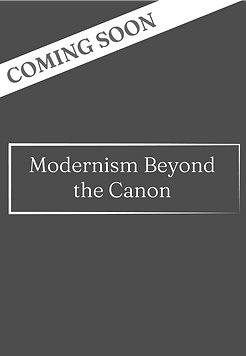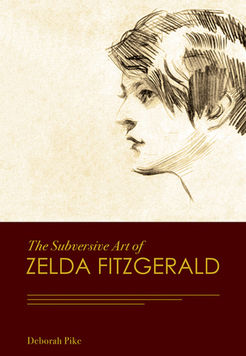
The twentieth century is drawing to a close, and there’s a play to put on – but the collaboration of a bunch of rag-tag youths is rarely straightforward. The lead actor has stormed off in a huff, a cast member has been been caught up in a fist fight, while the director has fallen into a deep depression. Amidst the chaos, actress Veronika is determined the show must go on, even if she is facing her own inner romantic turmoil.
The Players takes us from a play rehearsal set in an orchard in Western Australia, to the heady experimental theatre world of Paris, to a foreign office in London, to the streets of Berlin, and to a school in post-independent East Timor, as we become immersed in the tangled tales of six unforgettable characters.
An Australian coming-of-age story, The Players is about the lives and loves of 20-somethings, across ten years and six countries, who meet in a university theatre group and never quite leave the drama behind.
Reviews
Fiction Pick of the Week:
'[T]his unusually rich coming-of-age novel … follows the cast into young adulthood with a
Chekhovian sense of life’s tragicomedy, and some strikingly precise characterisation.’
- Cameron Woodhead, Sydney Morning Herald/ The Age
‘High intelligence, wit, warmth, an incisive psychological acuity … There is something
exquisite, and honeyed, and thoughtful, and never contemptuous in the way that …[Pike] has
explored the possibilities for growth, or lack of growth, or failure, or despair … or a coming into
being, a kind of transfiguration, that is all our potential, as the world … shakes us really hard.
I was so impressed by this book … ' (launch speech)
- Geordie Williamson, critic
‘The players merge and diverge, make and break one another, caring and careless, fearful and
fearless, selfish and selfless. Meanwhile, as they stumble onwards, the mystery and pain of their
pasts unfurl, keeping us engrossed to the very end ... A beautiful, ambitious and moving début.
I scoffed it.'
-Tim Minchin, actor and musician
'A timeless time, exquisitely captured, in a play where love, friendship and misgivings are first
celebrated in youth, then evolved and realised over the next decade through the drama of real life.
Enticing till the last page!’
- Bem Le Hunte, author
‘I just inhaled The Players … Funny, serious, emotional and profound, this novel is also exquisitely
written on the line … It’s a ripper.’
- John Byron, author
‘The novel excels as an evocation of student life in Perth in the ’90s, and as a portrait of adulthood’s
challenges in the decade following. A funny and wise début.’
- Melinda Harvey, critic
‘It’s a rich and ambitious book.’
- Diana Simmonds, Limelight Magazine
‘The Players … is an interesting, captivating and thought-provoking story.’
- Ann Steer, Beauty and Lace
The Subversive Art of Zelda Fitzgerald
(University of Missouri Press, 2017)
Revel in the artistic expressions of one of the literary world’s most intriguingly subversive personalities. This book sheds light on Zelda Fitzgerald, the famed wife of The Great Gatsby author, F. Scott Fitzgerald, as a modernist vanguard.
Heralded as a flamboyant socialite and icon of the Jazz Age, Zelda has inspired studies of her early life and work, focusing on the myth of this glorious-yet-doomed artist.
Zelda’s creative output was astonishing, considering the conditions under which she lived, and the brevity of her life: she wrote dozens of short stories, several journalistic pieces, a play, two novels, hundreds of letters written from mental asylums, kept diaries and produced hundreds of artworks. Employing a new mode of literary analysis that draws upon critics, theorists, and historians to situate her work in its context, The Subversive Art of Zelda Fitzgerald rehabilitates her literary and artistic status by reassessing her life and writings in the light of archival sources.
As an unprecedented study of the totality of Zelda Fitzgerald's multidisciplinary creative work that was vibrantly alive and utterly her own, this book uses abundant archival sources, framed by psychoanalytic and poststructuralist theories, to make an important contribution to American modernism, twentieth-century women’s history, Fitzgerald studies and psychiatric history.
The Subversive Art of Zelda Fitzgerald has garnered global critical acclaim, shortlisted for the Australian University Heads of English Prize in Literary Scholarship and nominated for the Martin Calinescu Prize for First Book (Modern Languages Association of America) and the C. Hugh Holman Award for a work on Southern Literature (US).
Reviews
‘A tour de force reading of material … research is impeccable, her theoretical frame lucid and well argued. The Subversive Art of Zelda Fitzgerald is a happy addition to Zelda scholarship and an encouraging step toward more modernist criticism about Zelda’s powerful and underrated aesthetic.’
- Catherine Keyser, Legacy 35, no. 2. University of Nebraska Press (2018), p. 246-49.
‘A very impressive, wide-ranging work. It does not simply use biography: it bases its readings and conclusions on a thorough knowledge of all Zelda Fitzgerald’s work—painting, dance, nonfiction, and fiction—as well as all the personal controversies, and (probably most important) all the dense—and often ignored—unpublished materials in the Princeton archive’.
-Professor Linda Wagner-Martin (University of North Carolina, Chapel Hill, author of Zelda Sayre Fitzgerald: An American Woman's Life)
‘Pike’s contribution to the field is substantial and ambitious … it … offers some of the first compelling readings of aspects of Zelda’s work. For me, it has provided new avenues to think about Fitzgerald—to read simultaneously the lines of privilege and marginalization that cross her life and work, to think about the political continuities across her oeuvre, to analyze discursive categories like seriousness, and to continue to make space for Fitzgerald’s writing in our cultural and critical memory.’
- Emily Murphy, ‘The Subversive Art of Zelda Fitzgerald by Deborah Pike’ (review), Modernism/modernity 25, no 2. (April 2018)
‘Pike makes brilliant observations about Zelda’s unique and revolutionary writing style … the book will likely become a seminal study for future Fitzgerald scholars as it lays the groundwork for celebrating Zelda’s complex lifework and original contributions to modernism’.
-Christine Grogan ‘The Subversive Art of Zelda Fitzgerald by Deborah Pike’ (review), Tulsa Studies in Women’s Literature 37, no 1. (Spring 2018): 223–22.
‘Pike’s monograph offers a fresh and thorough interpretation of the life and works of Zelda Fitzgerald both in relation to her husband and as an artist in her own right. Pike’s research is thorough, as is her knowledge of biographical, historical, and literary scholarship on both Fitzgeralds, making for a well-informed and nuanced analysis of Zelda’s life, her published and unpublished writings, and her visual art”
- Rickie-Ann Lehleitner, The Gatsby Affair: Scott, Zelda, and the Betrayal that Shaped an American Classic by Kendall Taylor, The Subversive Art of Zelda Fitzgerald by Deborah Pike (review) The F. Scott Fitzgerald Review, Vol. 16, No. 1 (2018), pp. 252-257.
Multidisciplinary Perspectives on Play:
From Birth to Beyond
(Springer, 2017)
While firmly acknowledging the importance of play in early childhood, this non-fiction work challenges the assumption that play is a birthright and reconceptualises play for the 21st century. It pushes beyond traditional understandings of play to question the relationship between play, the arts (theatre, music and philosophy) and wellbeing, the relevance of play in the educational context in an ever-changing world and how Australian Aboriginal conceptions of play can benefit wider understandings of play.
This peer-reviewed multidisciplinary volume examines how ideas of play evolve as children increasingly interact with popular culture and technology, and how developing notions of play have changed our work, teaching and home environments.
It combines the work of world-leading early childhood education researchers with contributions from distinguished and emerging scholars across the diverse fields of education, architecture, literature, philosophy, cultural studies, theology, theatre and the creative arts.
On Happiness: New Ideas for the
Twenty-first Century
(UWA Press, 2015)
What is happiness and how does the pursuit of happiness shape our lives? The myriad political, economic and philosophical problems surrounding this seemingly simple emotion suggest it is more complex and paradoxical than perhaps thought.
On Happiness is an eclectic collection of peer-reviewed essays offering perspectives on happiness ranging from economics, psychology and environmental studies and includes the work of Clive Hamilton, Steven Connor, Larissa Behrendt, John Quiggin, David Ritter and Alice Pung. The authors challenge common sense understandings of happiness, examine the often-counterproductive strategies for attaining happiness and rediscover what it means to be happy. On Happiness offers readers a spectrum of critical reflections and ‘rethinks’ of this ubiquitous cultural obsession.
On Happiness has also been translated into Arabic.
Reviews
‘This is not another book from 'The Happiness Industry'... This is a collection of sixteen essays encouraging readers to reflect on what actually the pursuit of happiness really means... [A] wonderful anthology.’
- Clare Calvet, ABC Local
‘In this interesting collection of contemporary ideas, respected academics discuss the nature of happiness.’
- Elaine Fry, The West Australian
‘Each essay in On Happiness tackles a different dimension of our experience of ‘happiness’ according to the writer’s experience and expertise. The scope and concerns of each essay, nonetheless, spill across disciplinary boundaries so that the ethicist, the economists, the philosophers, the professors of English and of law, the psychologist and the cultural theorists all draw variously on literature, philosophy, politics, comedy, history and the human sciences. This interweaving of thought and styles makes the collection both particularly readable and provocative’.’
- Anya Daly, The Sydney Review of Books
‘Pike’s judicious character analyses and close readings build a convincing case for the value of the long view: the pressures of choice informed by an individualist pursuit of happiness produce excoriating sufferings and moral jeopardies.’
- A.nya Daly, ‘‘Not Suffering, Not Melancholy: On Happiness’’, The Sydney Review of Books, June 24, 2016.

Modernism Beyond the Canon
(Bloomsbury Academic, to be released)
Modernism beyond the Canon elucidates the literary and artistic movement of modernism through new perspectives by focusing on writers and artists whose contributions to modernism have received relatively little critical attention. Going beyond the canon does not entail a rejection of canonical authors. Rather, it acknowledges that canon formation is an ongoing process, and that much significant and exciting work is to be found outside of the canon.
Modernism beyond the Canon profiles the lives and literary/artistic contributions of ‘minor moderns’ whose impacts on modernism are yet to be fully assessed – writers, editors, literary critics, screenwriters and publishers, from the experimental avant-garde to the popular, across class, racial, geographical, religious and linguistic lines.
Reviews
‘[has the] potential to be truly revolutionary … genuinely useful and ground-breaking…’
- Professor Ulrika Maude, University of Bristol, author of several books on modernist studies



.jpeg)

